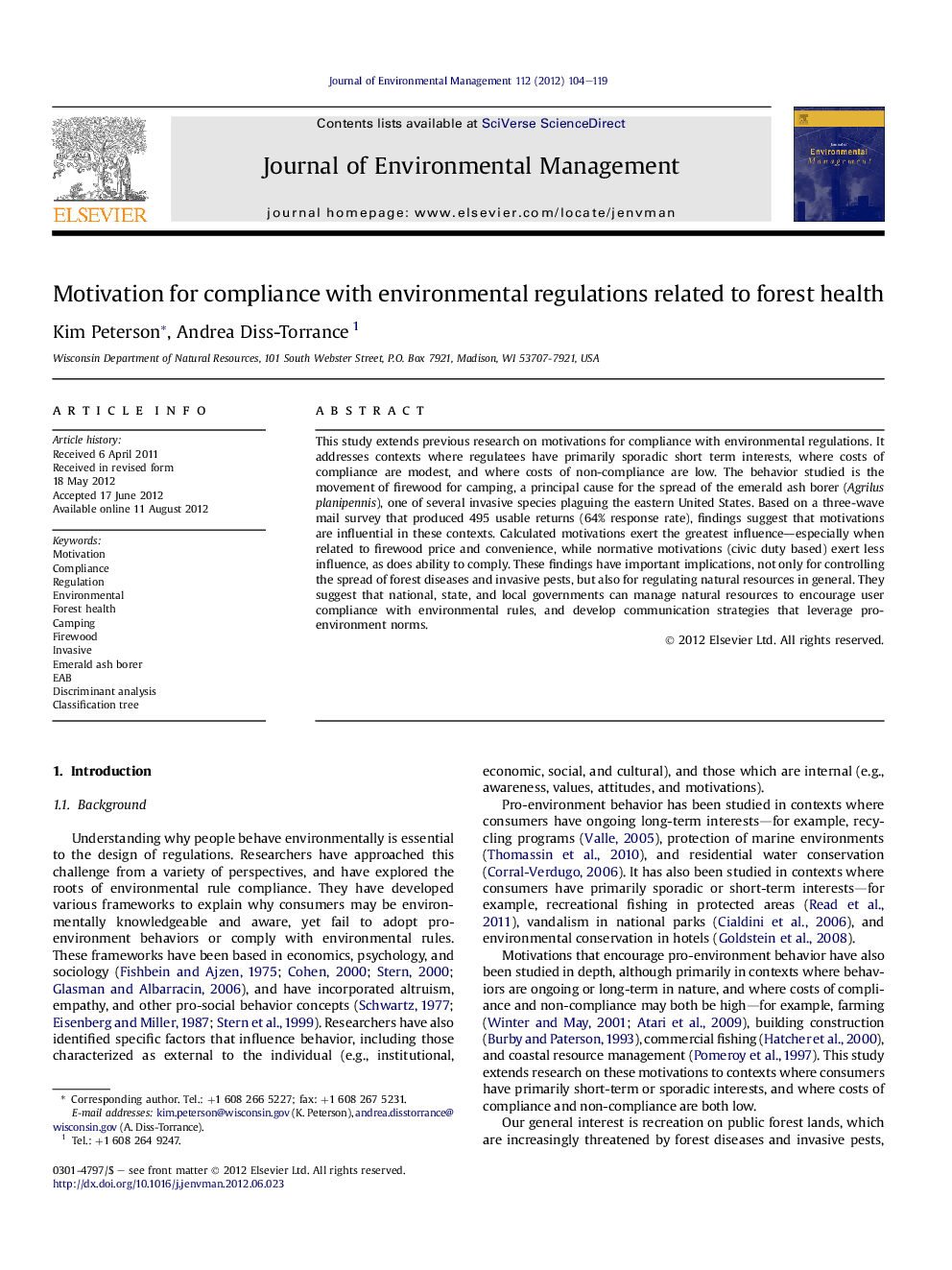| Article ID | Journal | Published Year | Pages | File Type |
|---|---|---|---|---|
| 1056415 | Journal of Environmental Management | 2012 | 16 Pages |
This study extends previous research on motivations for compliance with environmental regulations. It addresses contexts where regulatees have primarily sporadic short term interests, where costs of compliance are modest, and where costs of non-compliance are low. The behavior studied is the movement of firewood for camping, a principal cause for the spread of the emerald ash borer (Agrilus planipennis), one of several invasive species plaguing the eastern United States. Based on a three-wave mail survey that produced 495 usable returns (64% response rate), findings suggest that motivations are influential in these contexts. Calculated motivations exert the greatest influence—especially when related to firewood price and convenience, while normative motivations (civic duty based) exert less influence, as does ability to comply. These findings have important implications, not only for controlling the spread of forest diseases and invasive pests, but also for regulating natural resources in general. They suggest that national, state, and local governments can manage natural resources to encourage user compliance with environmental rules, and develop communication strategies that leverage pro-environment norms.
► We test the influence of motivations for compliance with environmental regulations. ► We focus on sporadic recreational activities on public lands (camping/firewood use). ► Results show that calculated and normative motivations are influential. ► Natural resources can therefore be managed to encourage rule compliance. ► Communication strategies can be tailored to leverage pro-environment norms.
